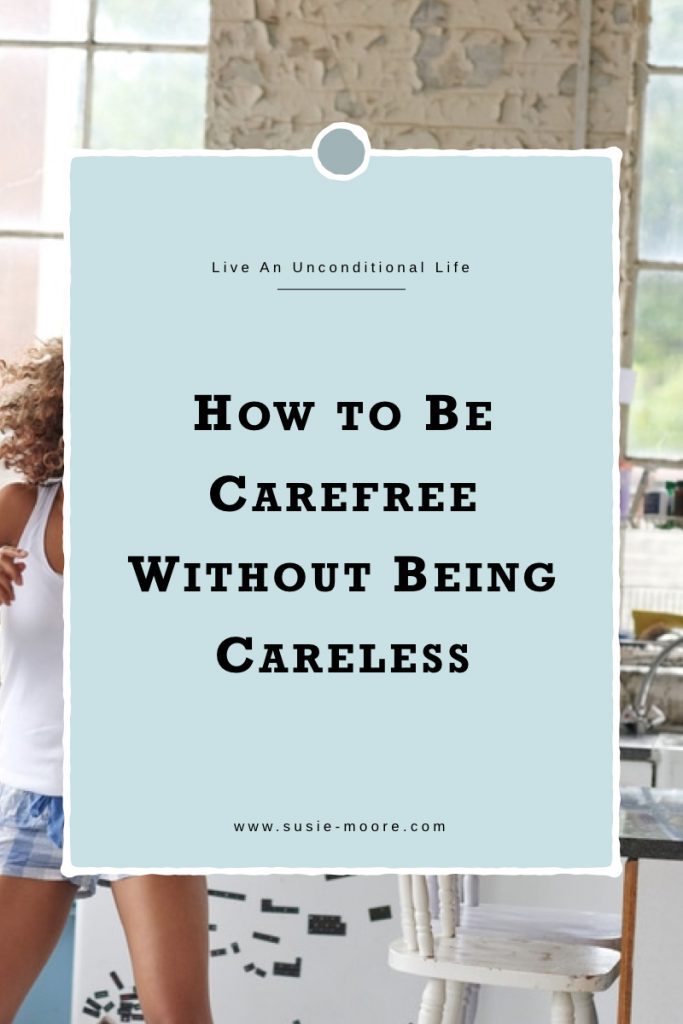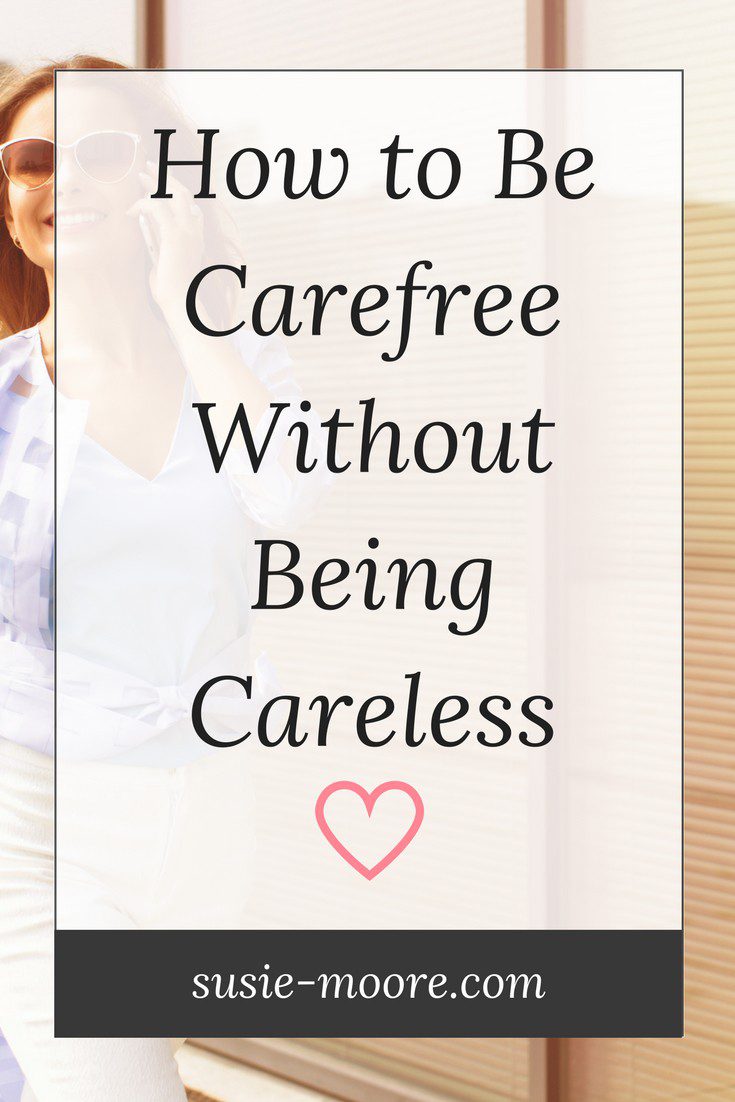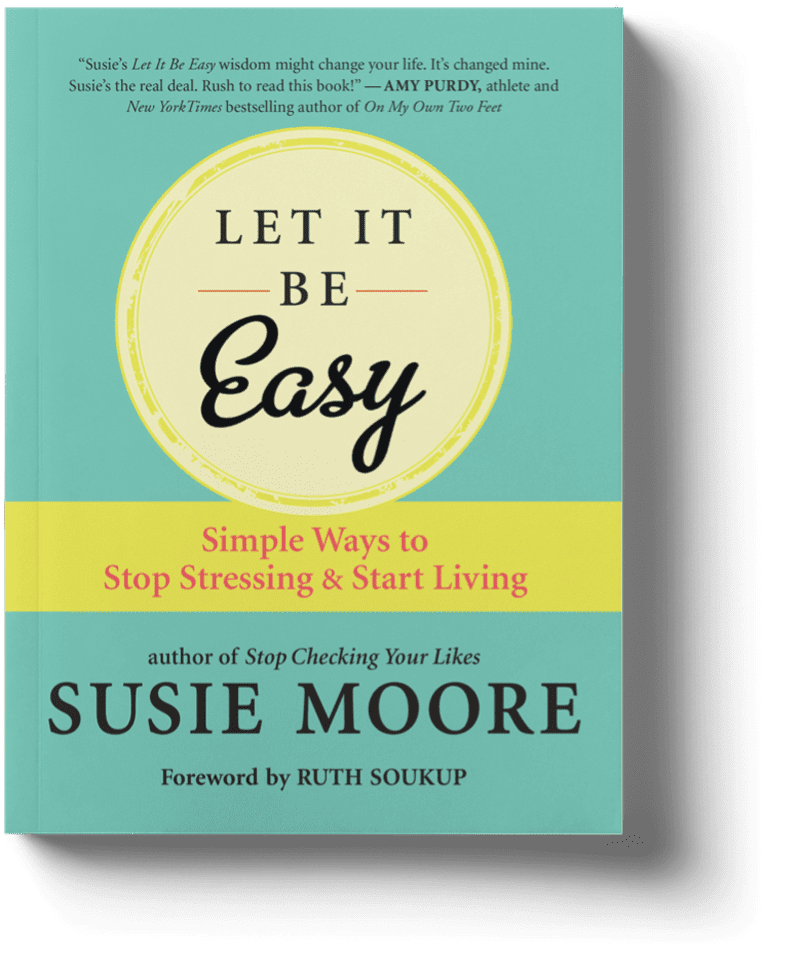I was dashing out of the office, feeling carefree, excited to meet a friend for a chilled martini at a rooftop bar after a crazy day at work. As I leapt into the elevator, my manager was coming out. “Calling it early today, Susie?” she said, cocking an eyebrow. It was 5:31 p.m. Was she serious?
As the elevator doors closed, I felt stung and a little confused. I had been working my ass off and was a lead seller on the team. Why did my manager care so much about my hours? Over our drinks, my friend and I decided that she chose the stupidest things to care about: staying late in the office, the appearance of hard work over actual hard work, and outward shows of dedication. All this superficial stuff over substance, sincerity, and results. Although I knew all of this, her comment still bothered me.
To survive in this world, you have to care less about little encounters like this and the many other trivialities that irk us every day. You have to know who you are and be OK with what you do. Being carefree, or caring less will ensure your own sanity and survival.
But this is not to be confused with being careless. Careless people don’t pull their weight. Careless people are complacent, even negligent. They don’t necessarily respect others or give a sh*t about their contribution to a team, family, or friendship.
Being carefree, or caring less, is quite the opposite. It’s caring about the stuff that counts and losing the nonsense that doesn’t. It’s about doing your best and not sweating the rest. Doing this ensures your best gets better too, because your energy isn’t used on unimportant crap. You can care deeply about the significant stuff without the worry that weighs down many high achievers with a need to please others and be perfect.
Here’s how you can be true to yourself, maintain your integrity, and maintain the right balance of carefree and careful.
1. Know thyself.
To know what to care about, you need to know what you value. What you value trumps all else—period. Let this be your guiding light when you make decisions.
Do you care about being a mentor to junior staff at work? Great, go for it. Do you care about streamlining office procedures into an organized, efficient flow? Brilliant, take charge! Do you care about sitting in non-mandatory internal meetings (trying to keep your eyes open) where you seem to always leave none the wiser and simply an hour older? No? Well, bow out politely. People can say what they will—you’ll be too busy doing the real work that matters to you. And this attitude and focus will probably get you noticed too.
2. Give up perfection.
“No one’s perfect.” We’ve all heard it one million times. And yet we all secretly strive for it, then blast ourselves on occasion when we fall short, right?
Here’s how I push through the perfection trap: I have a collection of videos on my website. Guess how many I’ve watched all the way through? Zero. Whenever I view a snippet, I see so many mistakes and things I’d do differently I actually cringe. But I still shoot them, post them, and share them. My husband checks them first to watch for any major mishaps (and I even make him wear headphones!).
I care about two things: what I’m talking about and sharing information I believe can benefit others. If I do those two things, my work is done. To me, that’s caring the right amount. If I were waiting for perfection, I would never record a single word. And I refuse to let my fear, vanity, or ego rule my output.
In this case, caring less can make you a creative machine. And as the old saying goes: You don’t have to get it perfect, you just have to get it going.
Don’t forget to pin the image below!
3. Remember the word “no.”
When you commit to caring less about the things that don’t matter to you, you reach a dangerously high level of blissful personal freedom. This can include declining professional projects, turning down personal invitations, and even giving yourself a freakin’ break if you decide to not work out on a Saturday morning. In the practical parody, The Life Changing Magic of Not Giving a F*ck, Sarah Knight writes, “The life-changing magic of not giving a f*ck is all about prioritizing. Choose joy over annoy.”
Saying no to more things that don’t make you money, make you better, or make you happy is the cornerstone of living a joyful life. Ask yourself: What can you say no to this week?
If (like most people) you struggle to say no, here’s my favorite way to say it:
“Claire, I would love to come to your bachelorette in Vegas/look at your resume/have coffee with your acquaintance, but have to say no because I have a lot on my plate right now. I don’t want to commit to something I can’t give my full attention to.”
If there is an alternative, offer it—like an intro to someone else or an offer of help in a smaller way. Otherwise I keep it loving, swift, and short. Bonus: Over time, people request less of you as you inadvertently teach them to respect your time. This is like heaven on a platter. An empowered, loving “no” is respectable. Martyrdom—“I’m always the first to help, I’m such a good friend, blah, blah, blah”—is not.
The Takeaway
When you care about the things that matter and not the millions of things in the universe that will suck your energy/time/money/sanity, you live a different life. Nothing made me happier than realizing this when I recently turned down a consulting project that would’ve made me stressed, unhappy, and overworked. I mulled over it for hours (and talked my poor husband to death about it), and I still felt uncertain about my choice.
Then one bright and sunny weekday afternoon, my dog and I went for a spontaneous walk. We strolled through the park then sat outside at a café where I ordered a glass of rosé. It wasn’t even 4 p.m.
Sitting there with my dog, my wine, and my free afternoon felt blissful, even naughty. “Is this why I turned down that job?” I asked myself, looking at my dog snoozing contently in the sun. Yes. Yes, it was. I love caring less.
Originally featured in Greatist.









